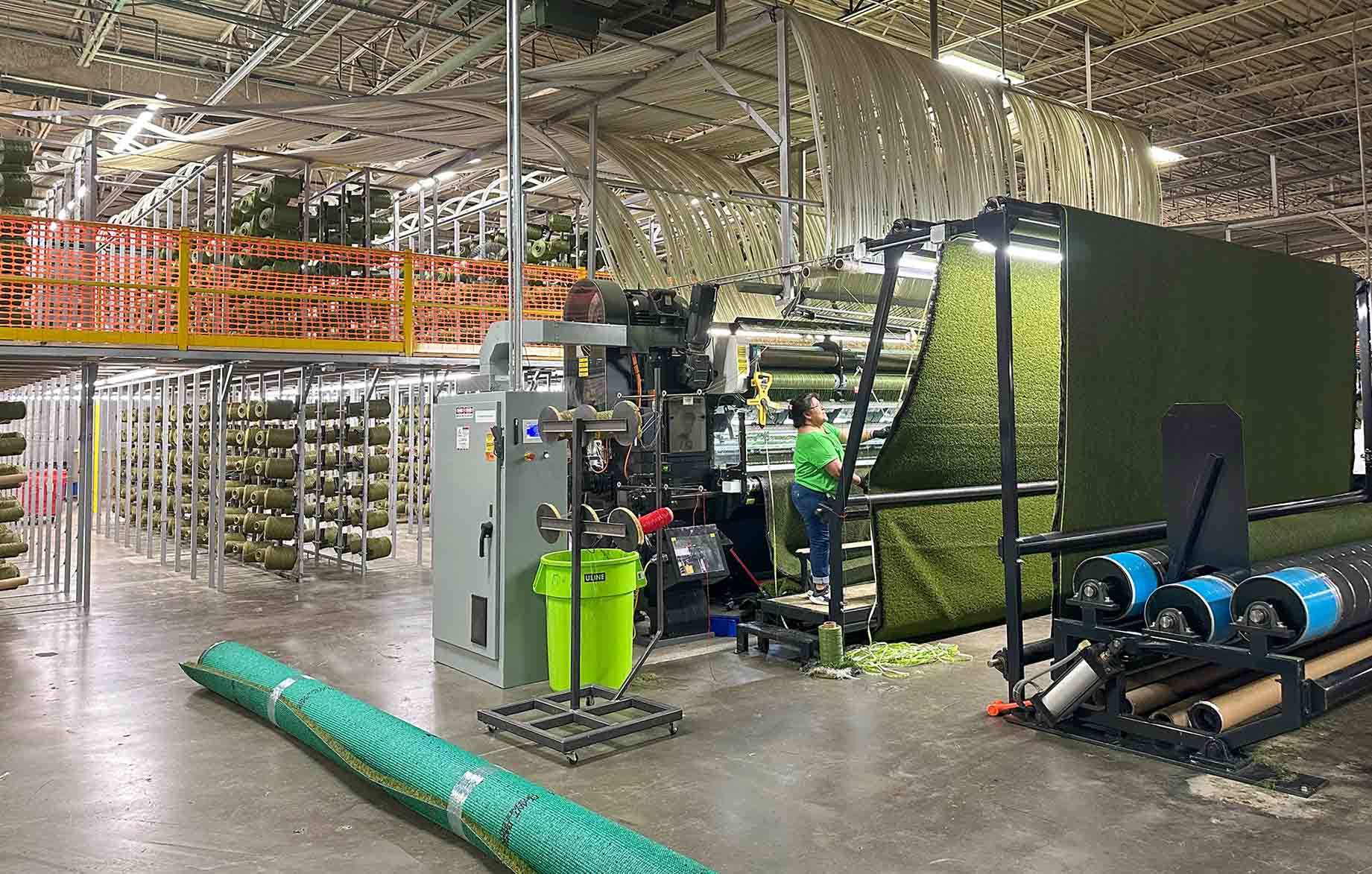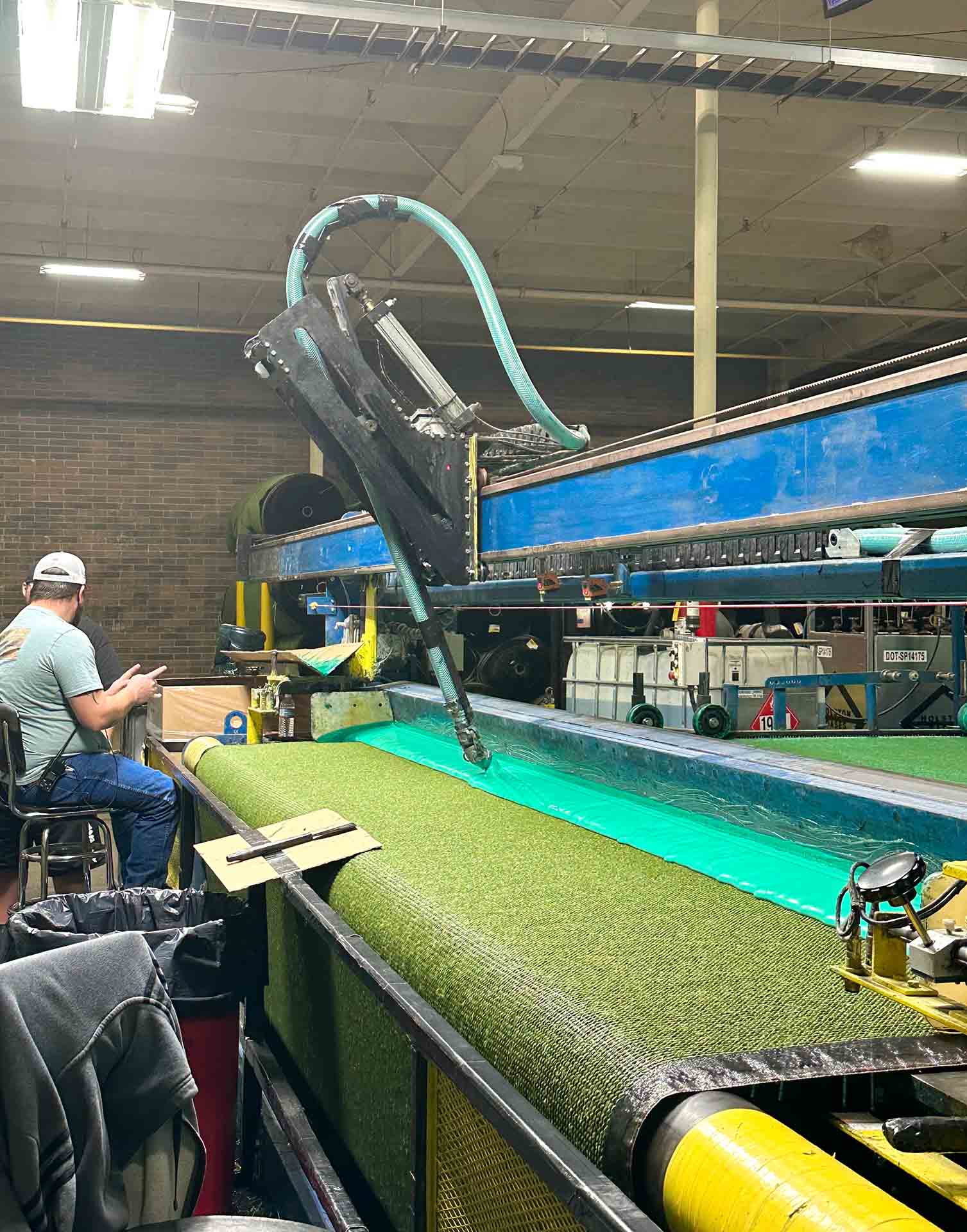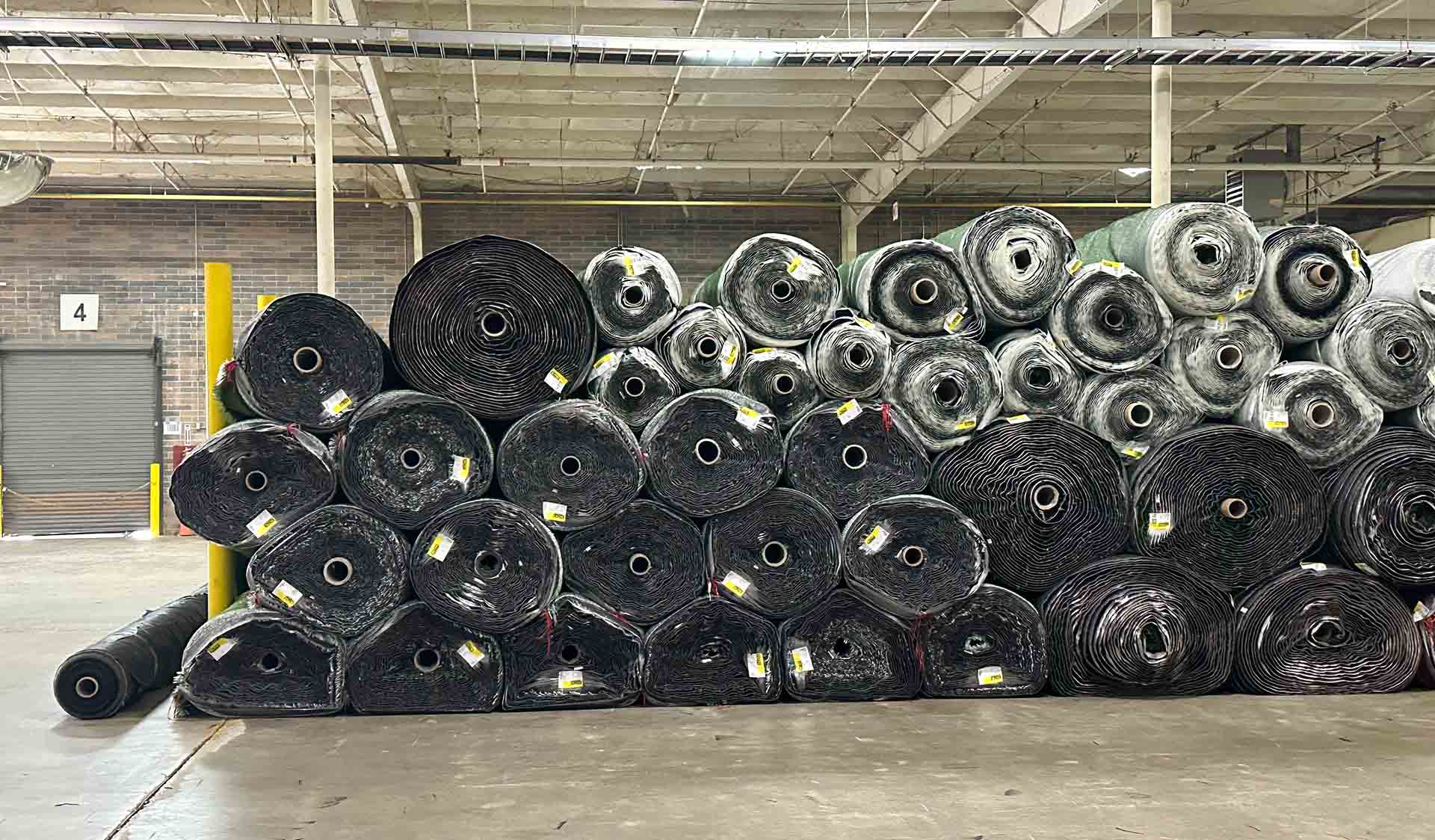
A look inside the Dalton, Ga., facility that uses soybean oil to create artificial grass products.
Soy-based turf driving soybean demand
August 1, 2024 | Brock Johnston
A growing preference for soybean oil is allowing Sport Group, the world’s largest sports surface business, to offer more durable and environmentally friendly products to customers.
The parent company, which oversees popular brands like SYNLawn, AstroTurf, Polytan and more, is also driving soybean demand for a unique partner — U.S. farmers.
SYNLawn artificial grass is made with a soy-based backing called EnviroLoc™ which uses soy-based polyol technology developed with support from the soybean checkoff. Based on UL third-party verification, soybean oil displaces 60% of the petroleum-based polyurethane in conventional artificial grass products.

Due to the product’s biobased backing, it can help buyers increase purchases of biobased products which ultimately support U.S. farmers through increased demand. The artificial grass also helps buyers reduce water consumption and eliminate costs for mowing, fertilizing and weeding.
“We’re the only company that uses soy backing as part of our commitment to sustainable manufacturing,” says Rob Dant, senior director of global sales at SYNLawn.
Using soybean oil and other plant-based renewable materials also qualifies multiple SYNLawn products for the U.S. Department of Agriculture’s Certified Biobased Product label. By displacing petroleum, biobased products reduce greenhouse gas (GHG) emissions associated with a changing climate.
“Soy continues to be a huge part of the equation due to its reliability and price point compared to other natural oils,” adds Dant.
The product is also 100% recyclable and made in America.
New products, new opportunities
The increased production of renewable, biobased products contributes to the growth and development of the nation’s bioeconomy — where society today turns to agriculture for sustainable sources of fuel, energy and products.
“More research and business leaders are realizing how soy can improve the performance and sustainability of products,” says Randy Miller, past president of the Iowa Soybean Association (ISA) and farmer from Lacona.
There are more than 1,000 different soy-based products available on the market today.
Miller, who currently helps guide soy checkoff investments on the ISA Board of Directors, says that farmer-led efforts are partially responsible for many of the recent biobased products to hit the market.
“Increased soybean demand is a win for farmers, and the research behind these new products is really a win for every consumer,” Miller says.

According to a report the USDA released in March 2024, biobased products contributed $489 billion to the U.S. economy in 2021 — a 5% increase from the year prior. The segment also supported, directly and indirectly, 3.94 million jobs across the country. The reduction of fossil fuels and associated GHG emissions by using biobased products was equivalent to preventing 5.4 million metric tons of carbon dioxide in 2021, the report estimates.
While the benefits are far-reaching, the impact of SYNLawn and other biobased products can be seen right here in Iowa.
Paws & Pints, a dog park and restaurant nestled in the heart of Des Moines, opened its doors in September 2022. The facility boasts a sprawling 25,000 sq. ft. indoor and outdoor dog yard using SYNLawn’s synthetic grass product — making it the first of its kind in Iowa.
Today, the turf’s sanitized antimicrobial technology and durable soy-backing continues to provide a safe and clean environment for guests and pets at one of the city’s most popular attractions.
“A smart business person doesn’t rely on one specific customer for their product,” says Miller. “As farmers, we need to continue finding new uses for our product to be successful. That’s why ISA keeps prioritizing [soy] checkoff dollars toward research and development, so farmers can tap into these new markets.”
Front row seat
In March, U.S. soybean farmer-leaders had the opportunity to visit Sport Group’s North American manufacturing facility in Dalton, Ga., where they spoke with company leadership about soy’s growing role in their products.
There, farmers saw firsthand how the artificial turf product was assembled and how soybean oil fit into the manufacturing process of artificial grass products.
“Being able to visit with buyers and put a face to our product makes a huge difference,” says Miller. “We’re excited to see how SYNLawn and other companies are looking to soybeans as a way to make better products for people.”
SYNLawn has installed more than 82 million square feet of U.S. soy-backed artificial grass across 200,000 installations in the U.S. and 19 additional countries since 2008.
Among the company’s most notable projects made possible by soy include New York City parks, hotels on the Las Vegas Strip and the Kennedy Space Center Visitor Complex in Cape Canaveral, Fla., which recently installed soy-based turf in the rocket launch viewing area.
In recent years, the company also announced it will add more soy than ever in their products — increasing its soy usage by 10%.
And with soy’s reliability and versatility, the possibilities are endless.
To learn more about SYNLawn and retail information, visit synlawn.com.
This featured story is for information only. The Iowa Soybean Association does not endorse, promote or make any representations regarding any specific suppliers mentioned herein.
Back